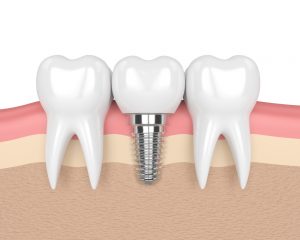Essential Supplemental Procedures for Dental Implants

If you’re in Auburn, Garrett, Kendallville, or Fort Wayne and in need of a supplemental procedure before your implant procedure, contact Smiles for Life today by calling 260-925-4290.
What Are Supplemental Procedures?
Supplemental procedures are treatments performed before dental implant surgery to make sure that your mouth is fully prepared. If you have low bone density, gum issues, or a condition that could impact implant success, Dr. Heffelfinger may recommend one or more of these procedures. Although they may require extra time upfront, they can make a huge difference in the long-term stability and health of your dental implants. These steps are essential to ensure you are dental implant ready.
Types of Supplemental Procedures
Some of the most common types of supplemental procedures that could help make your dental implant journey a success, include:
Bone Grafting
A strong jawbone is necessary for supporting dental implants. The bone grafting procedure is used to rebuild or strengthen areas of your jaw where bone has deteriorated. This process involves placing bone material—either from your body or a donor source—into the area needing reinforcement. Over time, the grafted bone merges with your natural bone, creating a solid foundation for the implant.
Sinus Lift
If you’re missing teeth in the upper jaw, particularly near the back of the mouth, there may not be enough room between your jaw and the sinus cavity to place an implant. A sinus lift, or sinus augmentation, involves raising the sinus floor and adding bone to create the necessary space to place dental implants. This is a common procedure for patients looking to replace upper back teeth with implants.
Ridge Augmentation
After a tooth is lost, the jawbone in that area can start to shrink. Ridge augmentation is a technique to rebuild the natural contours of the jawline, making it easier to place implants. By placing grafting material in the jaw, Dr. Heffelfinger can restore its shape and volume, ensuring your implant will be well-supported and increasing the likelihood of successful implant placement.
Gum Grafting
Healthy gums are just as important as a strong jawbone when it comes to successful implants. Gum grafting is a procedure that restores receding gums by adding tissue from another area of your mouth or a donor source. This added tissue helps protect the existing bone and implant, reducing the risk of gum disease around the implant area.
Why Are Supplemental Procedures Necessary?
Supplemental procedures address challenges like bone loss or gum issues, which can impact the long-term success of your implants. Dr. Heffelfinger evaluates each patient’s unique needs and goals to recommend the right supplemental treatments, ensuring that implants are securely anchored and can last for many years. While they may extend the treatment timeline slightly, these procedures are an investment in your oral health and in the durability of your new smile. Traditional implant placement can be particularly challenging when there is insufficient bone height or when the sinuses are too close to the jaw, making these supplemental procedures essential.
Frequently Asked Questions
Yes, patients with osteoporosis can still be candidates for dental implants. However, supplemental procedures like bone grafting may be necessary to ensure implant success and stability.
The level of pain experienced during supplemental procedures for dental implants can vary depending on the specific procedure performed and individual pain tolerance. However, it’s important to note that dental professionals take measures to ensure patient comfort and minimize discomfort during these procedures.
The healing process after dental implant surgery can vary from person to person and depends on several factors, including the individual’s overall health, the specific procedure performed, and their body’s ability to regenerate bone and soft tissues. On average, the healing process can take several months.
As with any surgical procedure, there are some inherent risks. Your dentist or oral surgeon will discuss potential complications and provide you with pre and post-operative care instructions to minimize these risks.
Laying a Strong Foundation for Your Smile
Dental implant supplemental procedures are necessary for successful, long-lasting dental implants. They may add a few extra steps, but they can make all the difference in achieving the results you’re looking for. Dr. Heffelfinger proudly serves patients in Auburn, Garrett, Kendallville, Fort Wayne and the surrounding areas with the highest standards of care, ensuring that each patient’s implant journey is personalized and effective.
If you’re ready to explore dental implants but want to make sure your mouth is prepared, contact Smiles for Life by calling 260-925-4290 to schedule an appointment. Dr. Heffelfinger and our team are here to help you every step of the way.
